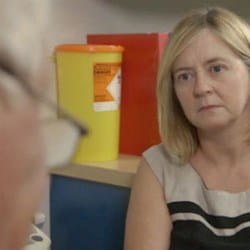BACKGROUND
Ms S was removed from the register at her GP practice six months ago after displaying aggressive behaviour towards one of the GPs – Dr N. She is now registered with another surgery across town.
Recently she posted a letter to her original practice raising concerns about the accuracy of her medical records. Ms S alleges that Dr N provided “selective and inaccurate details” in a referral letter to a local community mental health team in order to “cover up his incompetence”.
Ms S demands that the letter be removed from her medical records and that Dr N write to the local health board to correct the inaccuracies.
The practice contacts MDDUS asking for advice on how to deal with the matter given that Ms S is no longer a patient there. The practice states that Dr N stands by the details stated in his referral letter and believes they accurately reflect his clinical assessment.
ANALYSIS/OUTCOME
An MDDUS adviser writes back to offer advice. She states that even though Ms S is no longer registered at the practice her letter could be viewed as an expression of dissatisfaction requiring a response under NHS complaints procedures. The adviser informs the practice that, under UK GDPR, the patient has a right to rectification of any inaccurate information in her record and the practice has an obligation to take reasonable steps to ensure that the data they hold is accurate.
The practice is advised that in drafting a response it might be preferable for this to come from a clinical or administrative member of staff and not from Dr N himself, or for the partnership to sign off the letter. This would avoid "personal contact" and provide reassurance that an independent party has reviewed the matter objectively. Dr N should contribute, with his comments being incorporated into the practice response.
A draft response is sent to MDDUS for review. The letter first expresses regret at Ms S’s dissatisfaction with the referral letter and summarises the concerns as the practice understands them. It then outlines the steps taken by the practice to investigate these concerns.
The response confirms that in reassessing the content in the referral letter, the practice agrees that it is an accurate reflection of Dr N’s clinical judgement at the time, and explains the reasons for this decision. The letter further states that Ms S may request that a note explaining her views is included in or appended to the record, however it would not be appropriate to remove the referral letter from her records.
Ms S is further advised that she can contact the local ombudsman or the Information Commissioner's Office (ICO) if she is dissatisfied with the response, and contact details are provided.
KEY POINTS
- Patients have a legal right to have inaccurate personal data held about them rectified and reasonable steps should therefore be taken to investigate any requests for rectification.
- Patients also have a right to ask for a note to be added to their records if they dispute an entry.
- Remind complainants that they are entitled to raise their concerns with the ombudsman if unsatisfied with a complaint response, or to the ICO if their concerns relate to the processing of their data.
This page was correct at the time of publication. Any guidance is intended as general guidance for members only. If you are a member and need specific advice relating to your own circumstances, please contact one of our advisers.
Read more from this issue of Insight Primary

Save this article
Save this article to a list of favourite articles which members can access in their account.
Save to library



